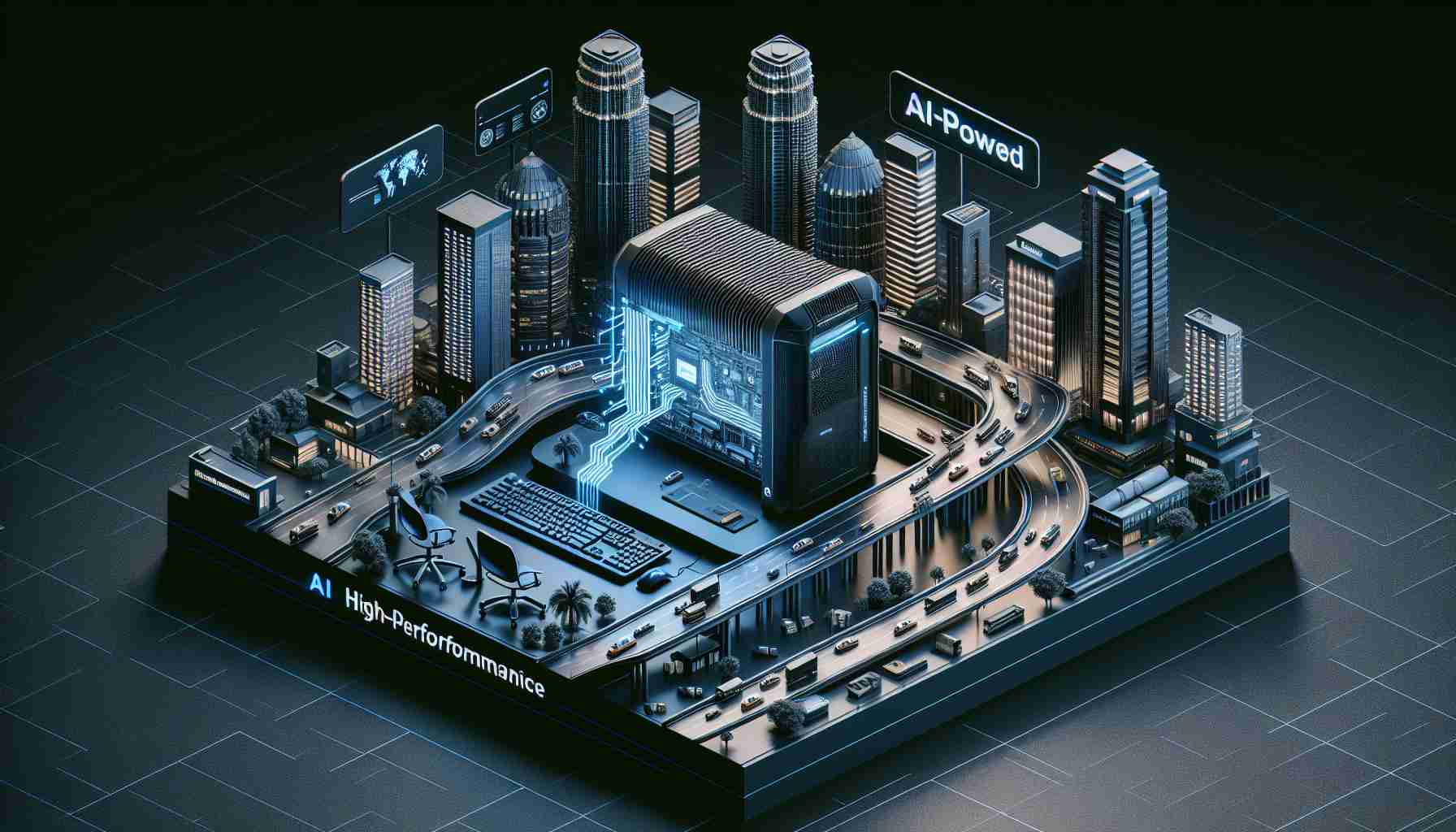Lenovo has unveiled a new workstation, the ThinkStation P8, designed to accelerate the implementation of artificial intelligence (AI) across various sectors in Malaysia. This move aligns closely with the country’s AI aspirations as outlined in the national AI Roadmap.
The ThinkStation P8 stands as a beacon for industries such as architecture, engineering, healthcare, and media that require high-performance computing solutions. Its design is noteworthy, with thermal efficiency reminiscent of Aston Martin vehicles, allowing the machine to handle complex processes such as data-heavy tasks, real-time graphics, and AI model training.
Embedded at the heart of the P8 are the potent AMD Ryzen Threadripper Pro 7000 WX-Series processors alongside Nvidia RTX graphics cards, making this workstation ideal for demanding applications like Building Information Modeling (BIM) and software development. The ThinkStation P8 is no slouch in aesthetics either, boasting a sleek profile that conceals a power supply robust enough to support significant expansions, including up to three Nvidia RTX 6000 Ada Generation GPUs.
With options for Windows 11 and Linux operation, the P8 is versatile and user-centric, offering Independent Software Vendor (ISV) certifications, while its expansion flexibility doesn’t compromise its storage capabilities. The machine also features built-in hardware monitoring, Lenovo Performance Tuner, and ThinkShield security protocols, meticulously crafted to boost performance and enhance security.
Pitched as a wise investment for Malaysian businesses ready to embark on or expand their AI journey, the ThinkStation P8 comes at a competitive price starting from RM16,429.10. Its arrival in the market heralds a new chapter of innovation and productivity, energizing Malaysia’s stride towards becoming a powerhouse of AI-enhanced business operations.
Relevant Facts:
1. Malaysia’s commitment to AI development can be supported by modern workstations such as the ThinkStation P8. Malaysia has the Malaysia Digital Economy Blueprint, often referred to as MyDIGITAL, which aims to transform Malaysia into a regionally leading digital economy.
2. AI workstations like the ThinkStation P8 are essential for supporting the increasing data analysis and simulation needs associated with the Fourth Industrial Revolution (Industry 4.0).
3. The global demand for AI and machine learning capabilities is increasing, driving the growth of advanced computing solutions in various sectors. The ThinkStation P8 is designed to meet these growing demands.
4. The processors and graphics cards mentioned in the ThinkStation P8 are high-end components, implying that the workstation is built to cater to power users who work on CPU and GPU-intensive tasks.
5. The ThinkStation P8 is part of Lenovo’s broader portfolio of workstations that are often seen as competitors to other brands like HP’s Z series or Dell’s Precision series.
Key Questions and Answers:
1. Q: What makes the Lenovo ThinkStation P8 suitable for AI-powered tasks?
A: The ThinkStation P8 is equipped with AMD Ryzen Threadripper Pro 7000 WX-Series processors and Nvidia RTX graphics cards, providing significant computational power to handle machine learning, data analysis, and other AI-related tasks efficiently.
2. Q: How does the ThinkStation P8 contribute to Malaysia’s AI development goals?
A: The ThinkStation P8 provides local industries with the computational infrastructure necessary to develop and leverage AI, aligning with Malaysia’s national AI Roadmap’s ambitions to advance the country’s AI capabilities.
3. Q: What sectors are most likely to benefit from the introduction of the ThinkStation P8 in Malaysia?
A: Sectors such as architecture, engineering, healthcare, and media that require high-performance computing for design, simulation, and data processing are expected to benefit significantly from this technology.
Key Challenges or Controversies:
1. Cost can be a barrier for small and medium-sized enterprises (SMEs) that may find it difficult to justify the investment despite the competitive starting price.
2. There might be skepticism or resistance to adopting AI technology in traditional sectors unacquainted with the high level of technological integration the ThinkStation P8 represents.
3. As the ThinkStation P8 includes proprietary technology and software, there could be concerns related to vendor lock-in and compatibility with existing systems within various industries.
Advantages and Disadvantages:
Advantages:
– Advanced CPU and GPU capabilities cater to industry professionals requiring top-tier performance for AI and machine learning applications.
– The ThinkStation P8’s design prioritizes thermal efficiency, allowing for sustained performance without overheating.
– ISV certifications ensure software compatibility, providing users with a more stable and reliable system.
– Security features like ThinkShield provide an added layer of data protection, which is increasingly important as cybersecurity threats become more sophisticated.
Disadvantages:
– High costs of AI workstations like the P8 may not be feasible for all businesses, especially smaller operations with limited budgets.
– There may be additional expenses associated with software licensing, training, and integrating these workstations into existing IT infrastructures.
– The technology may outpace the current skill set available in the local workforce, necessitating further investment in training and education.
For more on ThinkStation workstations and to stay updated on Lenovo’s offerings, you can visit Lenovo’s official website.
